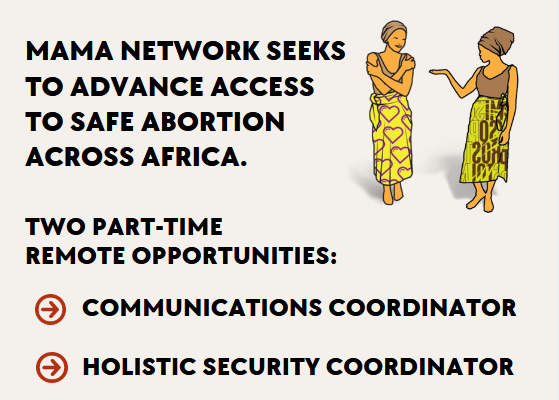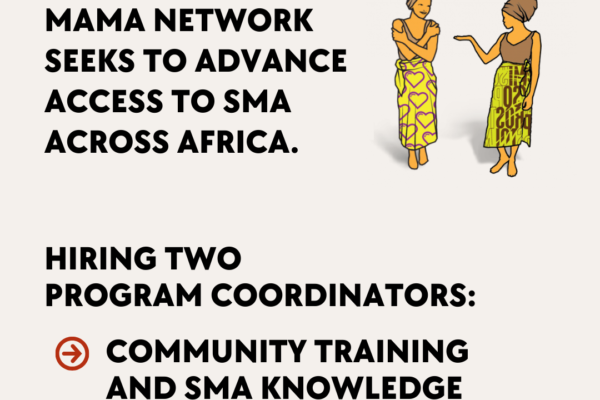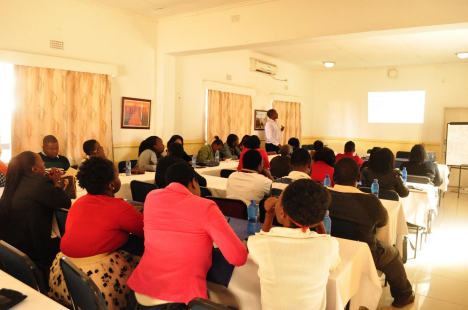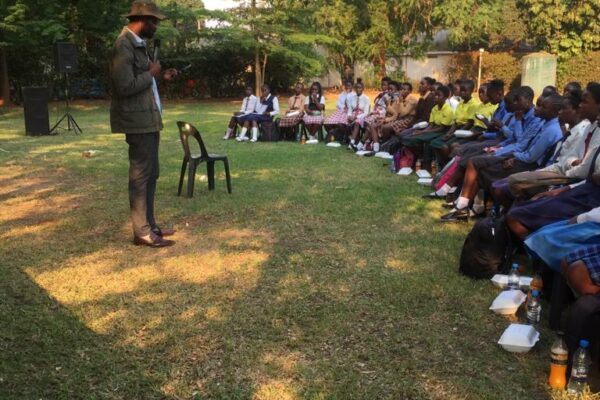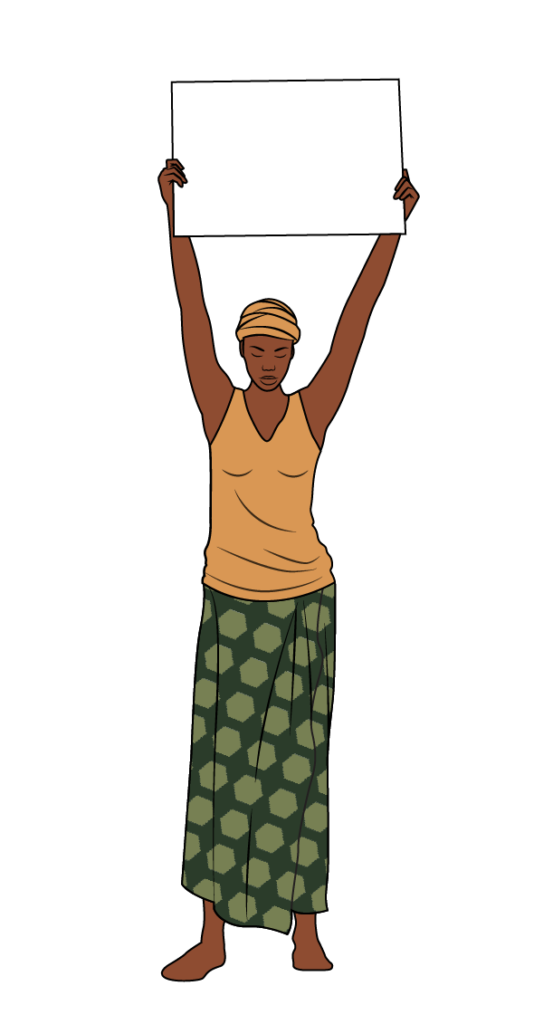MAMA is hiring an App Developer/Designer
TERMS OF REFERENCE: App Developer/Designer Overview of MAMA Network: Mobilizing Activists around Medical Abortion – MAMA – Network is a […]
MAMA is hiring a holistic security coordinator and a communications coordinator
We are hiring! Please help us promote these roles in your networks & groups The Holistic Security Coordinator will help us systematically define […]
We’re hiring two Program Coordinators!
We are excited to grow our Coordination team. As you all know, MAMA Network seeks to advance access to SMA […]
Centre for Social Concern and Development (CESOCODE) Conducted Pharmacists Advocacy Training
Pharmacists attending the advocacy Training Centre for Social Concern and Development (CESOCODE) is a member of MAMA Network working to […]
Our statement on Justyna Wydrzyńska
On 14th March 2023, Human Rights Defender and Abortion Activist Justyna Wydrzyńska was convicted and sentenced for providing abortion pills […]
MAMA Advocacy Communications ConsultantEOI: Call for Applications
Introduction to MAMA Network Mobilizing Activists around Medical Abortion – MAMA – Network is a collaboration of grassroots activists and […]
Unlocking safe spaces for comprehensive SRHR, safe and legal abortions for women and girls in Sierra Leone
In Sierra Leone, too many women and girls are still suffering under the existing Offences Against the Person Act of […]
Centre for Social Concern and Development (CESOCODE) Commemorates September 28
To mark International Safe Abortion Day (ISAD) 2022, Centre for Social Concern and Development (CESOCODE) conducted an activity to advocate […]
Girls’ informative open session – September 28th – International Safe Abortion Day
Contact Trust Youth Association (CTYA) has worked in Zambia since 1997, focusing on the goal of young people having access […]
